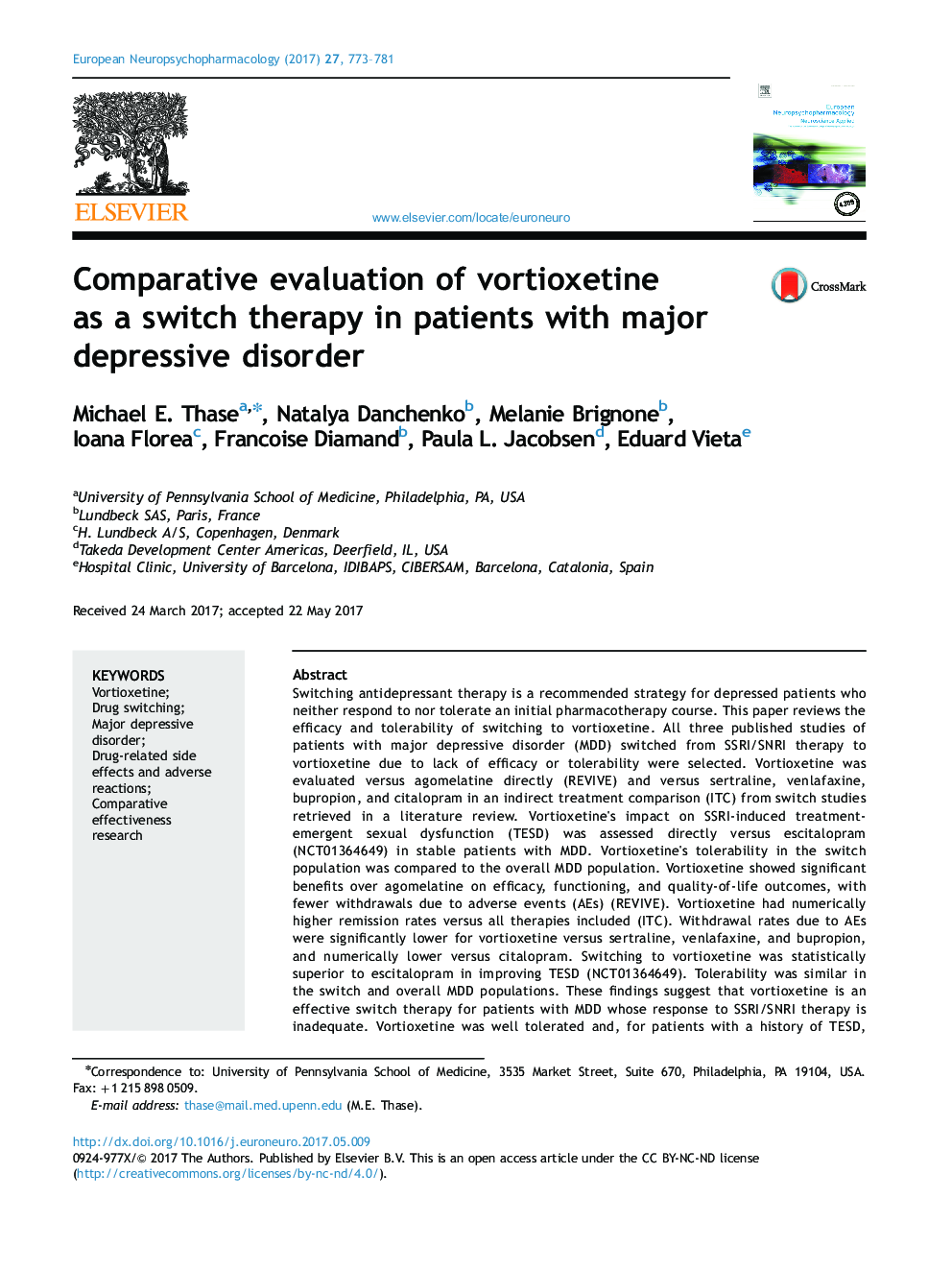| Article ID | Journal | Published Year | Pages | File Type |
|---|---|---|---|---|
| 4930373 | European Neuropsychopharmacology | 2017 | 9 Pages |
Switching antidepressant therapy is a recommended strategy for depressed patients who neither respond to nor tolerate an initial pharmacotherapy course. This paper reviews the efficacy and tolerability of switching to vortioxetine. All three published studies of patients with major depressive disorder (MDD) switched from SSRI/SNRI therapy to vortioxetine due to lack of efficacy or tolerability were selected. Vortioxetine was evaluated versus agomelatine directly (REVIVE) and versus sertraline, venlafaxine, bupropion, and citalopram in an indirect treatment comparison (ITC) from switch studies retrieved in a literature review. Vortioxetine׳s impact on SSRI-induced treatment-emergent sexual dysfunction (TESD) was assessed directly versus escitalopram (NCT01364649) in stable patients with MDD. Vortioxetine׳s tolerability in the switch population was compared to the overall MDD population. Vortioxetine showed significant benefits over agomelatine on efficacy, functioning, and quality-of-life outcomes, with fewer withdrawals due to adverse events (AEs) (REVIVE). Vortioxetine had numerically higher remission rates versus all therapies included (ITC). Withdrawal rates due to AEs were significantly lower for vortioxetine versus sertraline, venlafaxine, and bupropion, and numerically lower versus citalopram. Switching to vortioxetine was statistically superior to escitalopram in improving TESD (NCT01364649). Tolerability was similar in the switch and overall MDD populations. These findings suggest that vortioxetine is an effective switch therapy for patients with MDD whose response to SSRI/SNRI therapy is inadequate. Vortioxetine was well tolerated and, for patients with a history of TESD, showed significant advantages versus escitalopram. Vortioxetine appears to be a valid option for patients with MDD who have not been effectively treated with first-line pharmacotherapies.
